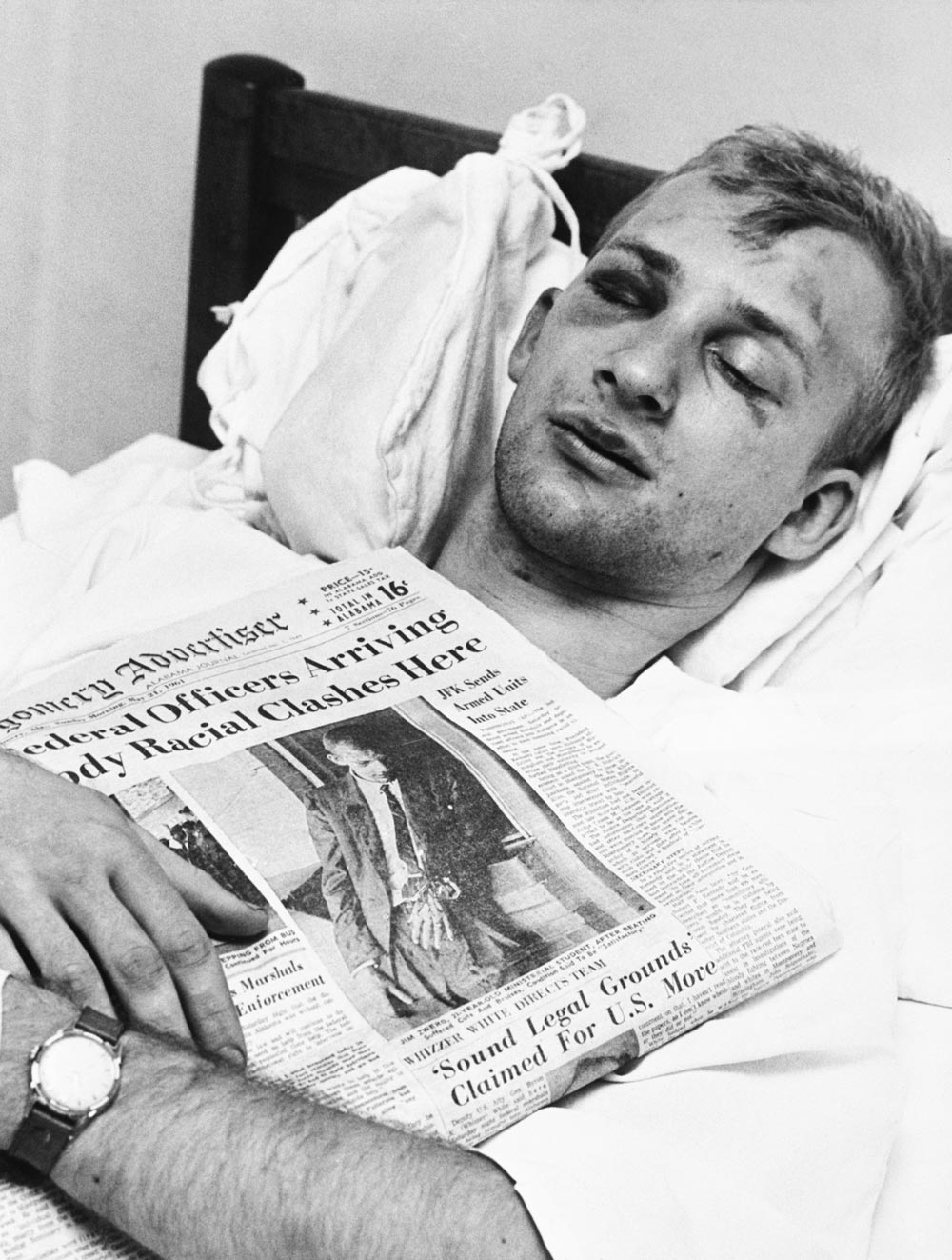Targeting White Activists
Scroll for moreWhite people who joined the Civil Rights Movement were targeted for violence.
White Americans who joined ranks with Black activists agitating for civil rights were denounced as traitors to their race and often faced violence and even death. Jim Zwerg, a college student and Freedom Rider, was beaten in Montgomery, Alabama, in 1961; Richard Parker, a white NAACP member, was attacked in 1960 during a Jacksonville, Florida, sit-in; Viola Liuzzo, a Detroit housewife, and James Reeb, a Boston minister, were both murdered in 1965 while in Alabama for voting rights demonstrations; and Jonathan Daniels, a seminary student and voting rights activist, was shot and killed in Hayneville, Alabama, in 1965.

Photo: Getty Images
On the night of April 25, 1956, a dynamite explosion broke the front windows and damaged the front door of the home Pastor Robert Graetz shared with his wife and young children. A white minister serving Montgomery’s primarily African American Trinity Lutheran Church, Pastor Graetz was an outspoken supporter of the Montgomery Bus Boycott and regularly drove in the carpool. Mayor W. A. Gayle later dismissed the bombing as “just a publicity stunt to build up interest of the Negroes in their campaign.”
In the summer of 1964, Congress of Racial Equality (CORE) activists Michael Schwerner, Andrew Goodman, and James Chaney were arrested in Philadelphia, Mississippi, by Neshoba County Deputy Sheriff Cecil Price, a Klansman. Schwerner and Goodman were white men from New York; Chaney was a Black man from Meridian, Mississippi. Sheriff Price released them to a waiting mob of Klansmen and all three men were shot and killed that night. After national news coverage and an intensive federal investigation, their remains were discovered more than a month later, on August 4, 1964.
The very same racial inequality that white activists joined Black Americans in fighting against elevated white activists’ sacrifices in the public view. Days after Alabama segregationists killed Rev. James Reeb with a blow to the head, President Lyndon B. Johnson invoked the Boston minister’s memory in a March 15, 1965, speech before delivering a draft of the long-awaited Voting Rights Act to Congress. Jimmie Lee Jackson, the young Black voting rights activist whose February 1965 murder by an Alabama State Trooper helped launch the Selma protest for voting rights, was not mentioned.
“The slaying of a Negro in Mississippi is not news,” Michael Schwerner’s wife and fellow-CORE worker, Rita Schwerner, told reporters in 1964. “It is only because my husband and Andrew Goodman were white that the national alarm has been sounded.” Indeed, investigators searching Mississippi’s woods, fields, swamps, and rivers that summer found the remains of eight African American men: Henry Dee and Charles Moore, college students who were kidnapped, beaten, and murdered in May 1964; and six unidentified corpses, including one wearing a CORE T-shirt.

A Freedom Rider recovers in a hospital bed after being beaten at a Montgomery, Alabama, bus terminal.